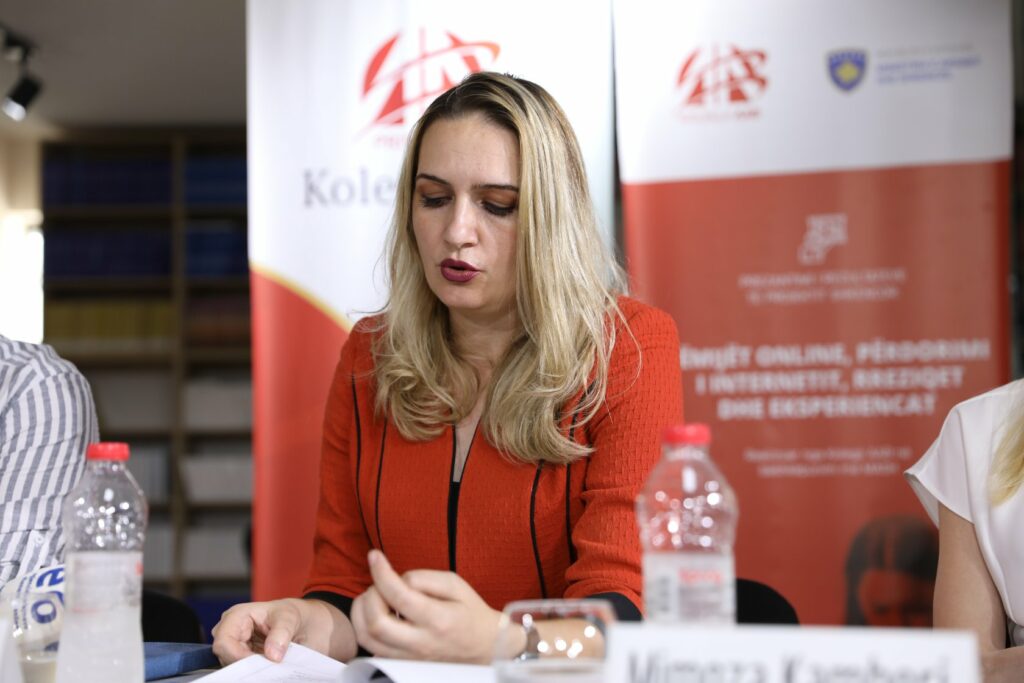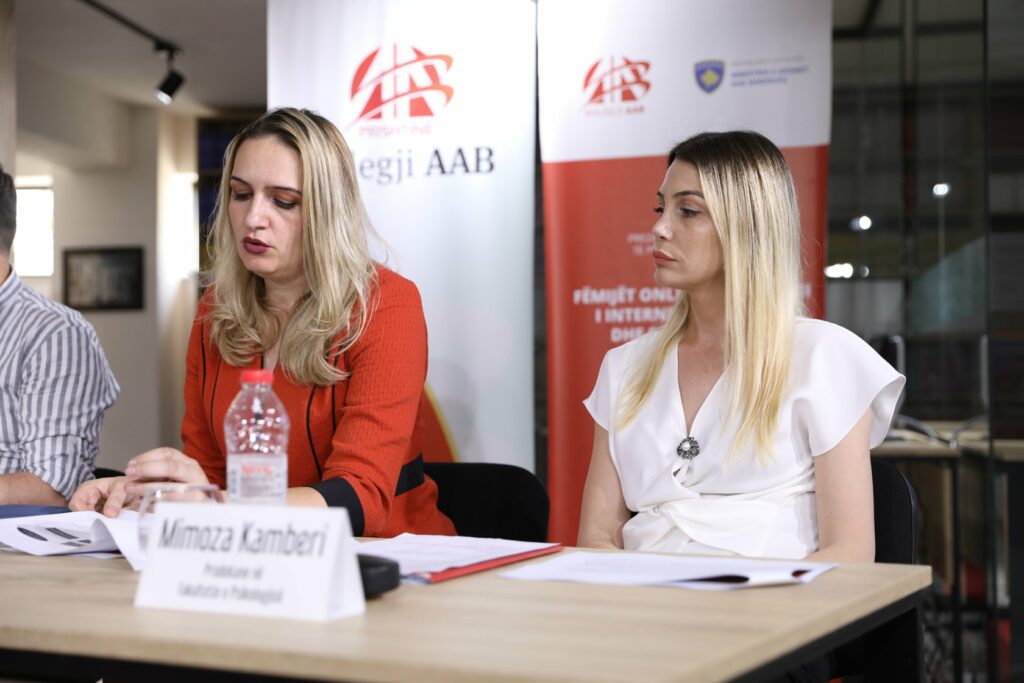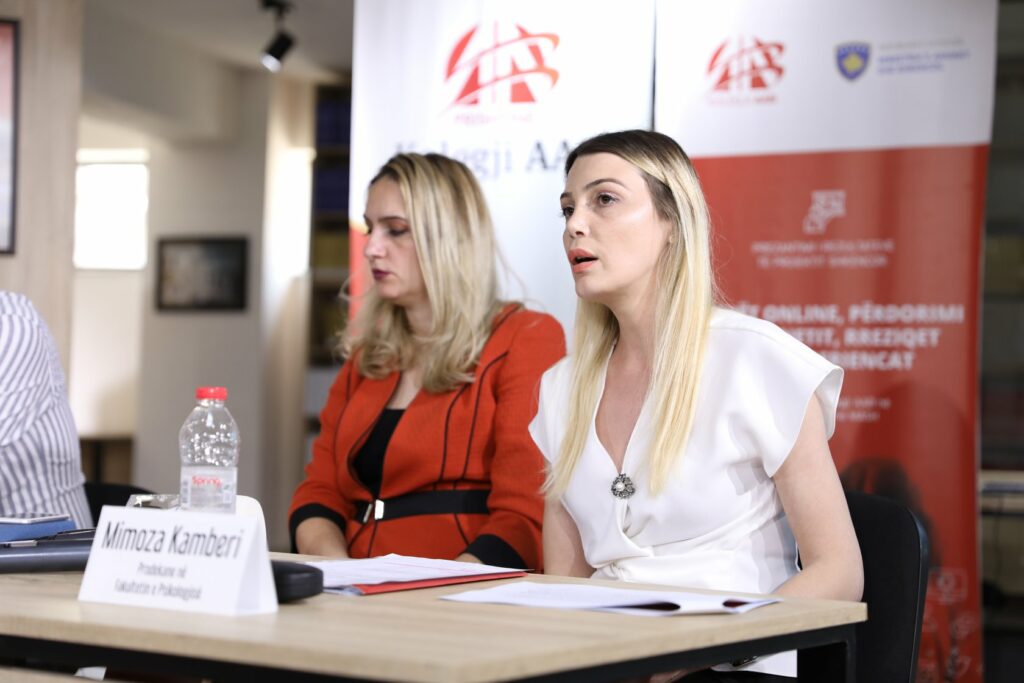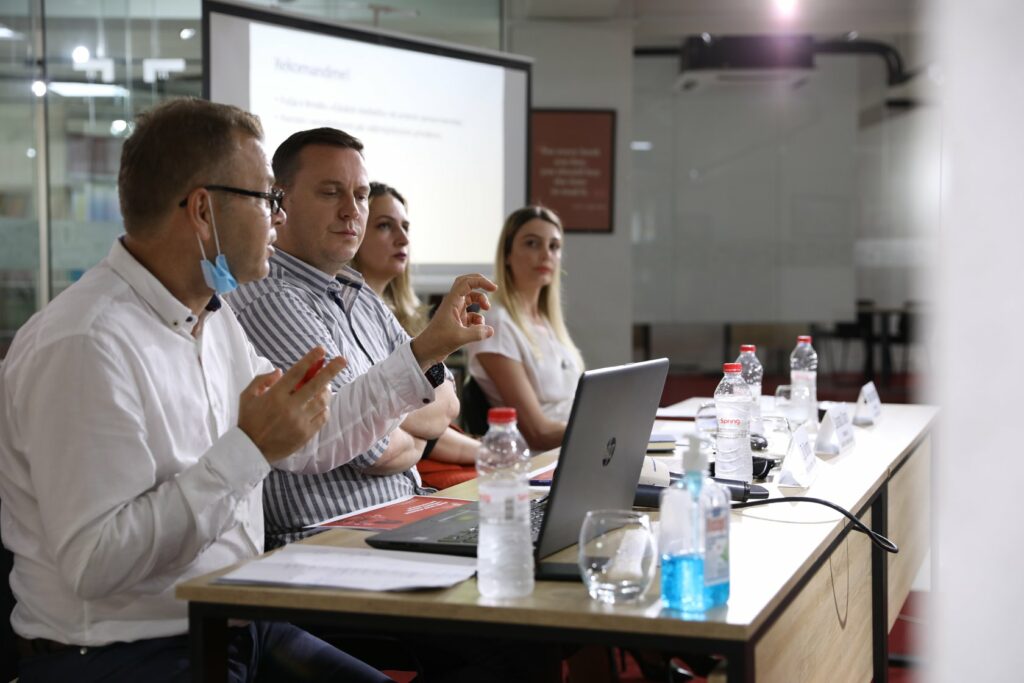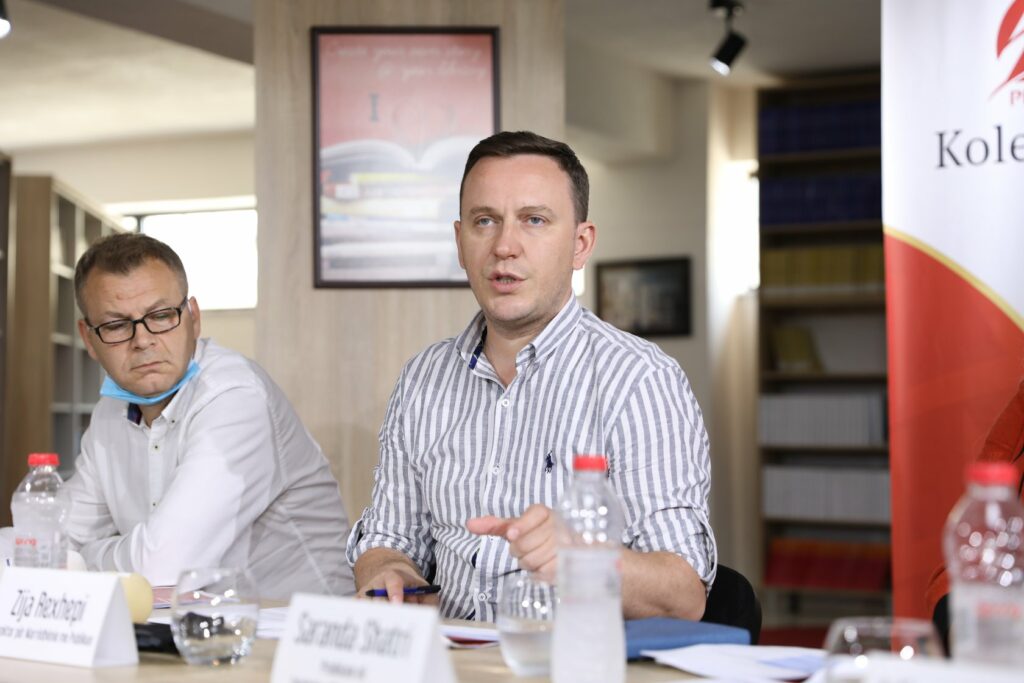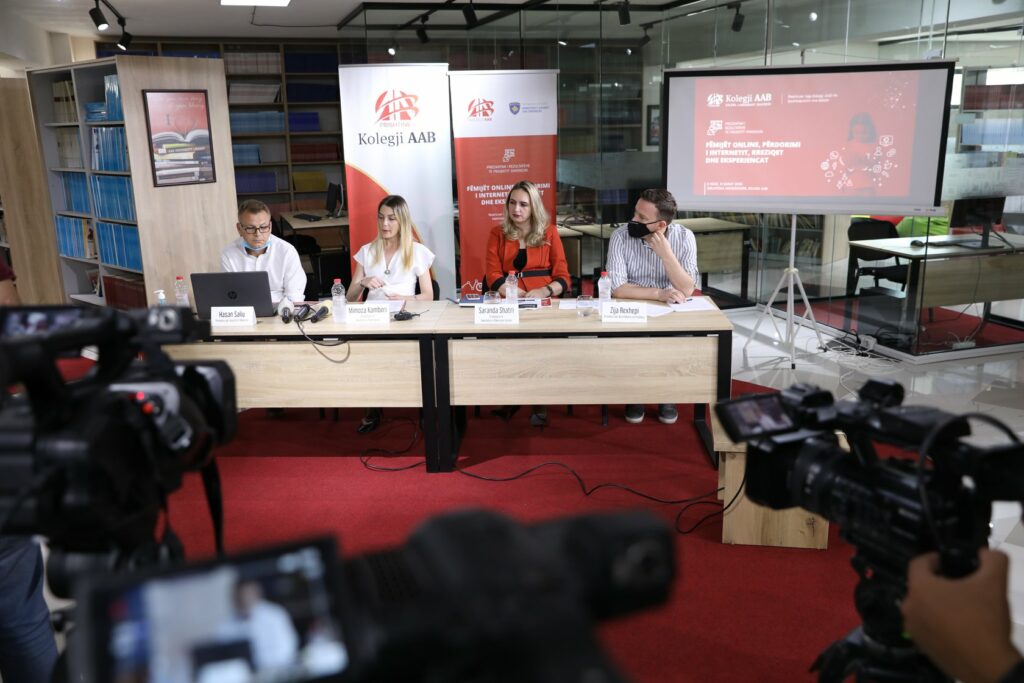

For the first time in Kosovo, a scientific research was conducted on the time spent online by children, and the risks and experiences they are exposed to.
The project was implemented by AAB College as part of the scientific research grants awarded by MES.
Since 2009, scientific research such as this are carried out consistently in the EU. However, this is the first time that such a project takes place in our country, where neighboring countries like Serbia are included in the data but Albania still remains in the process of inclusion.
During the presentation of the research results of year 2019, Pro-rector of scientific research in AAB College, Hasan Saliu stated that, because of the pandemic we could not present our findings earlier. “The purpose of this research was to measure the time that children spend online, what they use this time on, and what the dangers that might befall them are. The other objective of this research was to compare how the children in Kosovo use the internet when as opposed to other children in the EU.” Said Salihu.
Moreover, during the conference Salihu made it known that the University of Perugia were professional consultants in this research and that the preliminary findings were presented in the largest conference of media and communication held in the Complutense University in Madrid.
Based on the findings derived from the standardized questionnaire, according to researcher Sonia Livingstone, in the age group of 11-16, it turns out that 93% of children from Kosovo have stated that they own a smartphone. This finding also brings to light the data showing that the children’s primary method of access to the internet is their mobile phone (88%), with laptops being a close second (82%).
Additionally, this research also found that during the weekend and their summer vacation, Kosovar children double the time they spend on the internet. Around 40% of the children say that they spend 3-4 hours online during the weekend, and 1-2 hours during weekdays, said Zija Rexhepi, professor at AAB College. The data shows that over 60% of children of the age group 11-16 in Kosovo, watch videos and listen to music on Youtube daily, while 72.5% of them use social media daily. It is the male gender that dominates in social media presence (80%) followed by females (77.5%). The most popular social media in this age group is Instagram (43%), with Facebook coming in second (23%).
Based on the research findings, Professor Saranda Shatri, explained that 27.2% of children have an easier time talking about things online, as opposed to face-to-face.
Also, children of this age group have used the internet to meet new people online where later it resulted in meeting them face-to-face. 19.2% of the children have met a person face-to-face after talking to them online first. It’s social media that these meetings result from; around 28% of children have said that they have first met this people on Facebook, and 55.4% on Instagram. During these face-to-face meetings there have been cases of physical violence (1.8%) and sexual harassment (2.1%).
Worryingly, the results for the consumption of sexual content on the age groups of children 11-16 are high. 18.5% stated that they were exposed to various images, photos, drawings or videos with sexual content on them. Of these, 7.8% said that they were exposed to these images daily. Male children are the bigger consumers of sexual content. (40.5% of them state that they are not worried at all about the sexual content they view).
Moreover, professor Mimoza Kamberi, explained that according to the research findings, it turns out that 30% of the children have discussed these matters with their parents, while 70% have not discussed it at all. However, the consumption of explicit material in Kosovo remains lower when compared to other countries (e.g. France, 21%, Serbia, 50%, etc.)
Based on these findings, the authors of this research recommend that the subject “Media Education” must be included in Pre-university education. Also, parental mediation plays a huge role in this subject and must be addressed.
Watch full video on facebook
